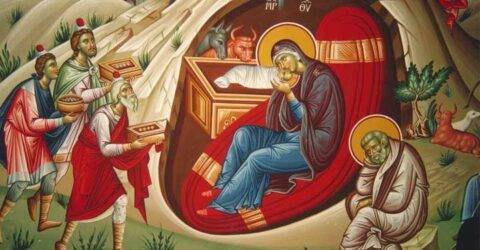
Today begins the Christmas fast – to meet the Christ Child
The Christmas fast, which we prepare for the celebration of the Nativity of Christ, lasts from November 28, 2020 to January 7, 2021 (according to the new calendar).
The establishment of the Christmas fast, as well as other multi-day fasts, dates back to the first centuries of Christianity. As early as the 4th century, Saint Ambrose of Milan, Philistius, and Blessed Augustine mentioned the Christmas fast in their works. In the 5th century, Leo the Great wrote about the Christmas fast. Originally, the Christmas fast lasted seven days for some Christians, and a little longer for others. At the council of 1166, which was held during the reign of the Patriarch of Constantinople Luke and the Byzantine Emperor Manuel, all Christians were ordered to observe a 40-day fast on the eve of the great feast of the Nativity of Christ.
Patriarch Balsamon of Antioch wrote that “His Holiness the Patriarch himself said that although the days of these fasts (the Assumption and Christmas) are not determined by the rule, we should nevertheless try to follow the unwritten church tradition and we are obliged to fast … from the 15th of November”. The Christmas fast is the last multi-day fast of the year. It lasts forty days and therefore is called Lent in the church constitution, as is Great Lent.
The Christmas fast was established so that we could purify ourselves before the day of Christ’s Nativity through repentance, prayer and fasting, so that with pure hearts, souls and bodies we could welcome with awe the Son of God who appeared to the world, and so that in addition to ordinary gifts and sacrifices we could offer Him our pure hearts and the desire to follow His teachings.
The founder of Christian asceticism is considered to be our Lord Jesus Christ himself, who, on the eve of entering into the asceticism of the redemption of the human race, strengthened himself with a long fast. And all ascetics, starting to serve the Lord, armed themselves with fasting and did not set out on the path of the Cross in any other way than by fasting.
* After a forty-day fast, Moses dared to climb to the top of Mount Sinai and receive from God the tablets with the Ten Commandments.
* The prophet Samuel was the fruit of fasting. His mother Anna, after fasting, prayed to God: “Lord of hosts, have mercy on me and grant me a child, so that I may dedicate him to You.”
* Fasting made the great hero Sampson invincible. He was conceived in his mother’s womb through fasting. Fasting gave birth to him. Fasting nursed him. Fasting nourished him. The fast that the angel had decreed: “The child you will bear shall not taste of the fruit of the vine. He shall not drink wine or any other strong drink.” While Sampson lived with the fast, he defeated thousands of Philistines, broke down the gates of fortified cities, and strangled a lion with his hands. However, when he broke his fast and Delilah led him into drunkenness and fornication, he was captured, blinded, and mocked by his enemies.
* After a forty-day fast, the prophet Elijah was granted the privilege of meeting the Lord face to face. After the fast, he resurrected a dead child and showed himself stronger than death. After the fast, he closed the heavens so that it would not rain for three and a half years. He did this to soften the hardness of the hearts of the Israelites who had given themselves over to debauchery and lawlessness. Thus he caused a forced fast among the whole people, until they repented and corrected their sins, which arose from a comfortable and pampered life.
* The Prophet Daniel, who for twenty days did not taste bread or drink water, taught even the lions to fast. The hungry lions did not tear him to pieces, as if he had a body of stone or copper or some other hard material. Fasting strengthened the body of the Prophet and made it invulnerable to the teeth of beasts, just as paint makes iron invulnerable to rust.
* The life of Saint John the Baptist was one of continuous fasting. He had neither a bed, nor a table, nor property, nor cattle, nor storehouses of food, nor anything else that is considered necessary for life. But precisely because of this the Lord testified that he was “the greatest of those born of women”.
* Fasting raised the Apostle Paul to the third heaven. He even includes it among the troubles and sufferings he endured in his missionary work for the glory of God and the salvation of people.
* The Ninevites, if they had not fasted, would not have escaped disaster, both they and their livestock.
* Fasting is a powerful weapon against demons. “This kind (demonic) does not come out by anything but prayer and fasting,” said Jesus after casting out a demon that had possessed a young man.
We should not mortify our bodies, but our passions. Fasting does not mean simply abstaining from fatty foods, but rather, it is primarily a renunciation of impure thoughts, desires, and deeds. Physical fasting is certainly a necessary aid in the fight against passions, especially against pride, which is considered the root of all further evil. Real fasting is primarily abstinence from all lust. Without spiritual fasting, say the Fathers, physical fasting alone is not accepted by God. Fasting has primarily a spiritual meaning and is organically connected with the entire spiritual life. Real fasting leads a person to humility. And in humility, a person gains the knowledge that for a person salvation lies only in God, in his grace. In acquiring all virtues and in fulfilling all commandments, the Holy Fathers attach the greatest importance to the virtue of discernment. Discernment means the gift of distinguishing between what is beneficial and what is harmful – where there is truth and where there is falsehood.
Leo the Great writes: “The observance of abstinence itself is determined in four time periods, so that during the year we may realize that we constantly need purification and that in the distraction of life we should always strive to cleanse sin through fasting and almsgiving, which is multiplied due to bodily weaknesses and the impurity of desires.”
According to Leo the Great, the Christmas fast is a sacrifice to God for the gathered fruits. “Just as the Lord has given us earthly fruits,” the saint writes, “so we too should be generous to the poor during this fast.”
According to Simeon the Thessalonian, “the fast of the Christmas Lent represents the fast of Moses, who, having fasted for forty days and forty nights, received the commandments of God on stone tablets. And we, fasting for forty days, contemplate and receive the living Word from the Virgin, not drawn on stone, but incarnate and born, and we unite ourselves to His Divine Flesh”.
Saint Photius, Patriarch of Constantinople, says: “A fast pleasing to God is one that, in addition to abstinence from food, also includes distancing from every sin, hatred, envy, gossip, inappropriate jokes, idle talk and other evils. He who fasts only bodily, not striving for virtue, resembles a man who has built a beautiful house, but lives in it with snakes and scorpions.”
May the Lord strengthen us in fasting and give us the strength to endure all temptations
and thank Him on the day of His Nativity!
PHOTOS
RELATED ARTICLES
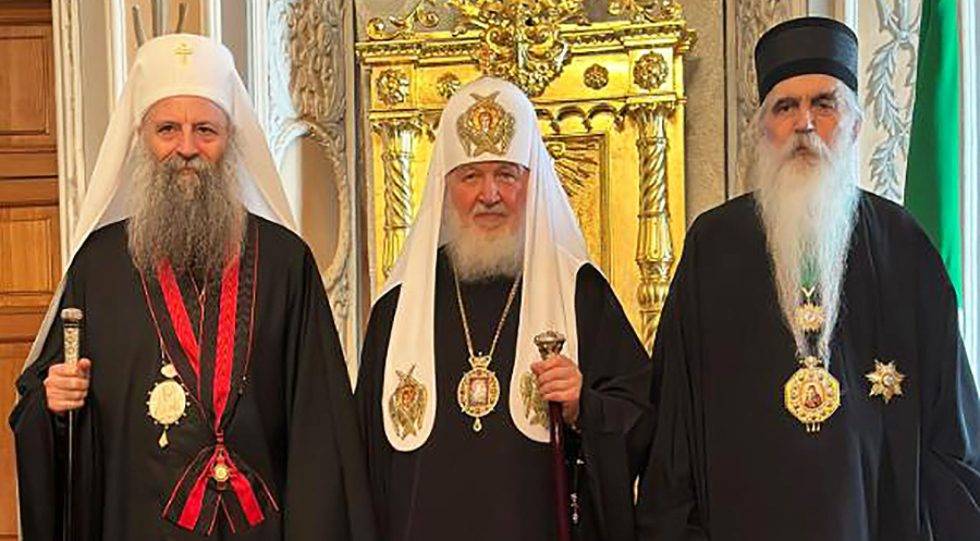
Patriarch Porphyry Awarded the Order of the Holy Equal-to-the-Apostles Prince Vladimir
After the Divine Liturgy in the Assumption Cathedral of the Trinity-Sergius...
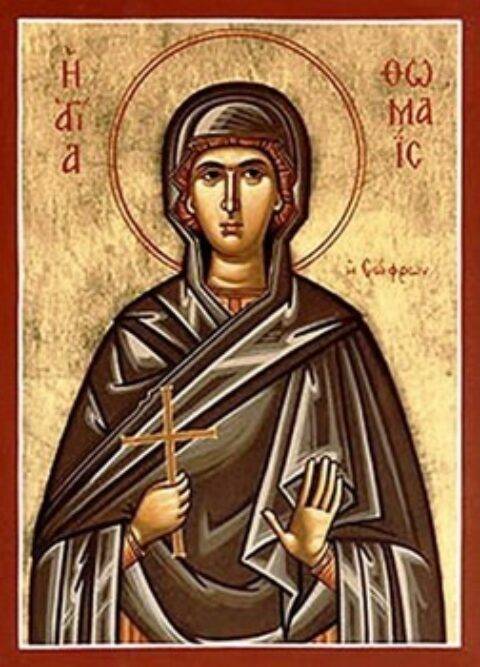
Calendar for April 26 Holy Martyr Thomais
Born in Alexandria of honorable parents; taught piety from a young age and at...
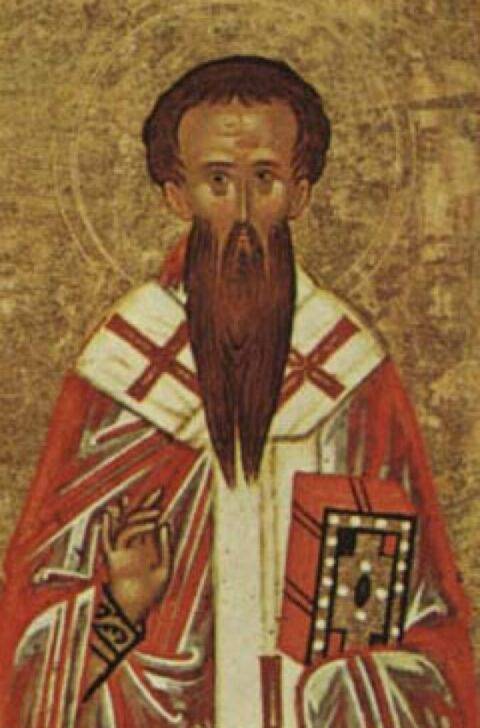
Calendar for April 25 Saint Basil the Confessor – Eastern Friday
A companion and martyr of Saint Procopius the Decapolis. Basil faithfully...


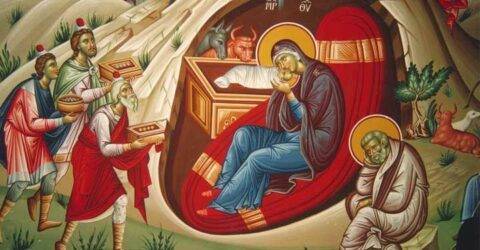

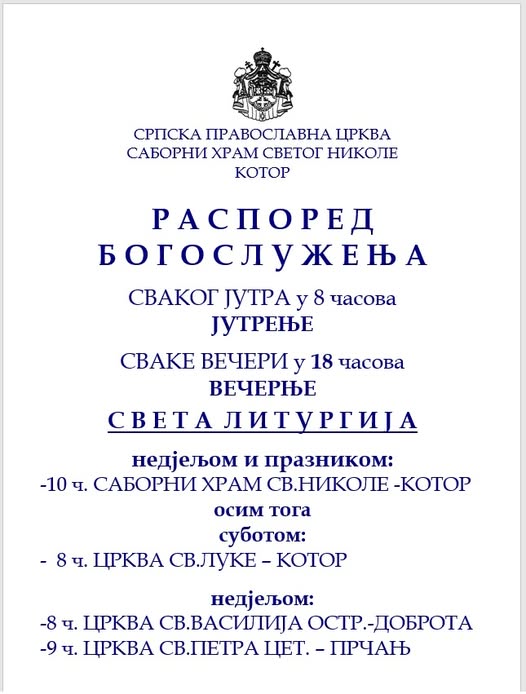
.png)